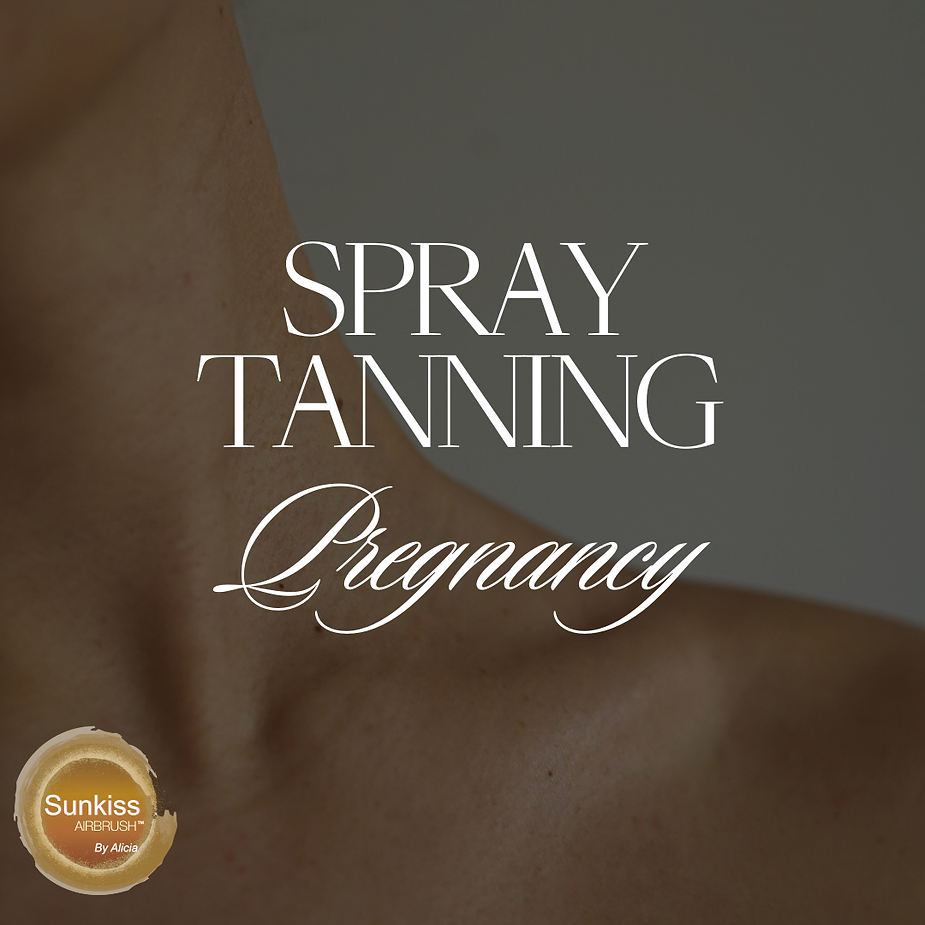Is Spray Tanning Safe During Pregnancy? What you need to know

navigating beauty choices during pregnacy? Discover the fact about spray tanning while expecting. Your Glow,your health,your choice.
When it comes to pregnancy, many women are understandably cautious about the products they use and the procedures they undergo. While the allure of a golden glow is tempting, it’s essential to consider the safety of spray tanning during pregnancy. As with any beauty treatment, it’s crucial to be informed about potential risks, especially when it involves exposure to chemicals that could affect both the mother and the developing baby.
The Appeal of Spray Tanning During Pregnancy
Pregnancy brings about many changes, and for some women, changes in skin tone or complexion might make them feel self-conscious. Spray tanning offers a quick, sun-free way to achieve a bronzed look without the dangers of UV exposure. Unlike traditional tanning methods, which involve potential sun damage, spray tanning seems like a safe alternative. But is it really safe for pregnant women?
Understanding the Chemicals in Spray Tans
Spray tanning solutions typically contain Dihydroxyacetone (DHA) as the active ingredient. DHA is a color additive that reacts with the amino acids on the skin’s surface to produce a tanned appearance. While DHA has been deemed safe for external use by the FDA, concerns arise when it comes to inhalation or absorption through the skin.
Other common ingredients in spray tanning products include:
• Parabens: Preservatives that may disrupt hormone function.
• Fragrances: Can cause allergic reactions or respiratory irritation.
• Erythrulose: Another tanning agent, often used in combination with DHA.
Potential Risks for Pregnant Women
1. Inhalation Concerns: The primary risk associated with spray tanning during pregnancy is the potential inhalation of DHA. When applied as a spray, DHA can become airborne and be inhaled, which could lead to respiratory issues. While there’s no direct evidence that inhalation of DHA is harmful to the fetus, the lack of definitive research means caution is advised.
2. Skin Absorption: Although DHA primarily works on the skin’s outermost layer, some concerns exist about its potential absorption into the bloodstream, especially when applied to broken or irritated skin. While this risk is minimal, it’s a factor worth considering for pregnant women.
3. Hormonal Disruptors: Parabens, commonly found in many cosmetics, including some spray tanning solutions, have been linked to hormone disruption. During pregnancy, hormonal balance is crucial for fetal development, so it’s wise to avoid products containing parabens whenever possible.
Expert Opinions and Guidelines
According to the American Academy of Dermatology’s 2019 guidelines on ‘Pregnancy and Skin Care: Guidelines for Safe Cosmetic Practices,’ pregnant women should be cautious when using products containing DHA, especially in spray form. The guidelines recommend that pregnant women avoid inhaling any spray product and opt for well-ventilated areas if they choose to use spray tanning solutions.
Healthcare providers also generally advise against spray tanning during pregnancy, not because of definitive harm, but due to the lack of conclusive studies on the subject. The consensus among dermatologists and obstetricians is to err on the side of caution.
Alternatives to Spray Tanning
If you’re pregnant and still want that sun-kissed glow, consider these safer alternatives:
• Self-Tanning Lotions: These can be applied directly to the skin, reducing the risk of inhalation.
• Bronzing Powders: Temporary and easy to remove, bronzing powders offer a safe way to add some color to your skin without any chemical concerns.
• Natural Sunlight: While it’s important to protect your skin from UV damage, a short time in the sun with adequate SPF protection can give you a light, natural tan.
Final Thoughts
Pregnancy is a time to be mindful of what you expose your body to, including beauty products. While the research on spray tanning during pregnancy is not definitive, there are enough potential risks to consider other options. If you do decide to go ahead with a spray tan, make sure to consult with your healthcare provider, choose products carefully, and ensure you’re in a well-ventilated environment to minimize any risks.
Remember, the most important thing during pregnancy is the health and well-being of you and your baby. So, make informed decisions and choose the safest options for that gorgeous glow!
Stay informed and glow safely! ✨
